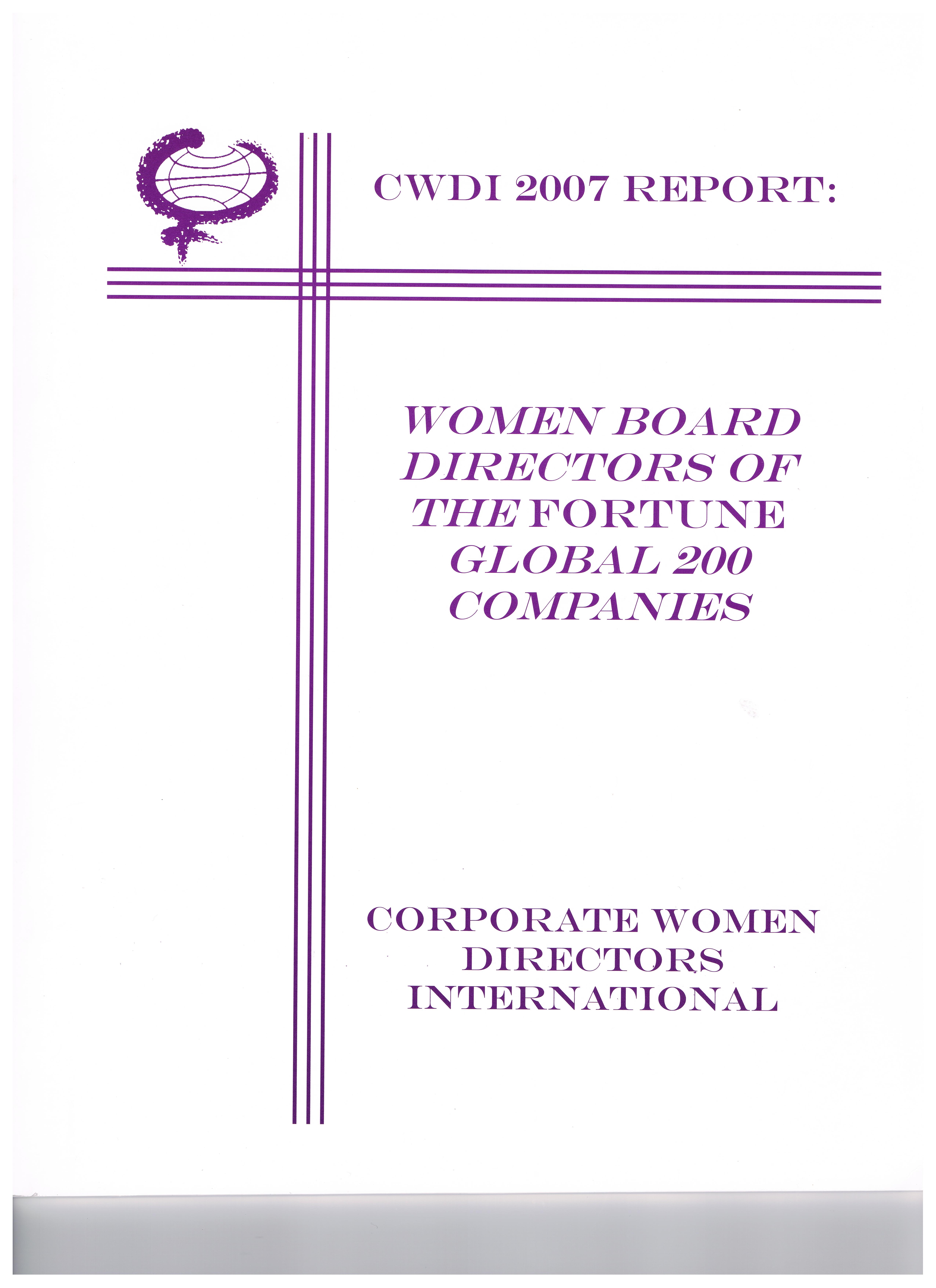2007 CWDI Report:
Women Board Directors of Fortune Global 200 Companies
The 2007 CWDI Report on Women Board Directors of Fortune Global 200 focuses on the top 200 companies Forbes lists as the largest publicly traded companies worldwide. The study found that women held 11.2% of board seats in the F200 listing.
Key Findings
- Among the world’s largest companies, the U.S. is the pacesetter in appointing women to board seats: Of the 75 U.S. companies in the Fortune Global 200, all but one has at least one woman on their board. Of these 75 companies, 17.6% of all board directors are women, leading all the countries represented by Fortune Global 200 companies. However, this percentage represents only a 0.1% increase from the 2004 CWDI Report.
- Within Europe, the United Kingdom and the Netherlands rate the best with 13.9% and 12.2% women’s board representation, respectively. Dutch companies increased by 3.6% since 2004, the highest increase of any country in the Fortune Global 200 rankings. Companies based in Switzerland increased significantly also from 7.7% to 9.5% (+1.8%) as did companies from the United Kingdom (12.5% to 13.9%).
- Japan, the world’s second largest economy, with 27 companies in the Fortune Global 200, has only five women-held board seats out of 389 (1.3%). However, this percentage is nearly double Japan’s percentage of 0.7% in the 2004 CWDI Report.
- The Top Ten ranking of companies with the highest percentage of women board directors includes 26 companies, dominated by the United States with 18. The remaining companies are all European: three German companies, along with two British, one Norwegian, one Dutch, and one Danish company round out the Top Ten.
- The top two companies with the highest percentage of women board members are European companies. The Supervisory Board of Royal Ahold, headquartered in the Netherlands, takes first place with four women out of seven board members (57.1%). Statoil, a petroleum refining company based in Norway, ranks second globally with 50% of its board made up of women (5 out of 10).
- Despite the two leading companies, European companies in the Fortune Global 200 have lower percentages of women directors compared to the U.S. The United Kingdom has 13.9% of its board directors being female. The Netherlands has 10.2% followed by Germany with 10.9%, Switzerland with 9.5% , France (7.6%), and Italy (2.9%).
- 45 companies in the Fortune Global 200 have no women directors, and they include name brands known worldwide, many of whose base customers are women. Japanese companies, automobile and energy companies dominate the listing of boards with no female directors.
The good news:
- Over three-quarters (77.5%) of the 200 largest companies in the world, as ranked by Fortune in 2006, have at least one woman director on their board. This is a significant 4% increase since the 2004 CWDI Report on Women Board Directors of Fortune Global 200 Companies.
- From 2004-2007, the total number of board seats held by women increased from 285 female-held seats to 308. However, men still hold 88.8% of all board appointments to the 200 largest companies in the world.
The bad news:
- Only 11.2% of all board seats in the Fortune Global 200 companies are held by women. This is a modest increase from the 2004 Report when the percentage of women board members of Fortune Global 200 companies stood at 10.4%.
- Tokenism prevails among many of the largest companies — almost half of the companies with women directors (45.6%) have only one woman director. The glass ceiling in corporate directorships remains in place.
Sponsored By:
To order a copy of the 2007 CWDI Report on Fortune Global 200, please click here


